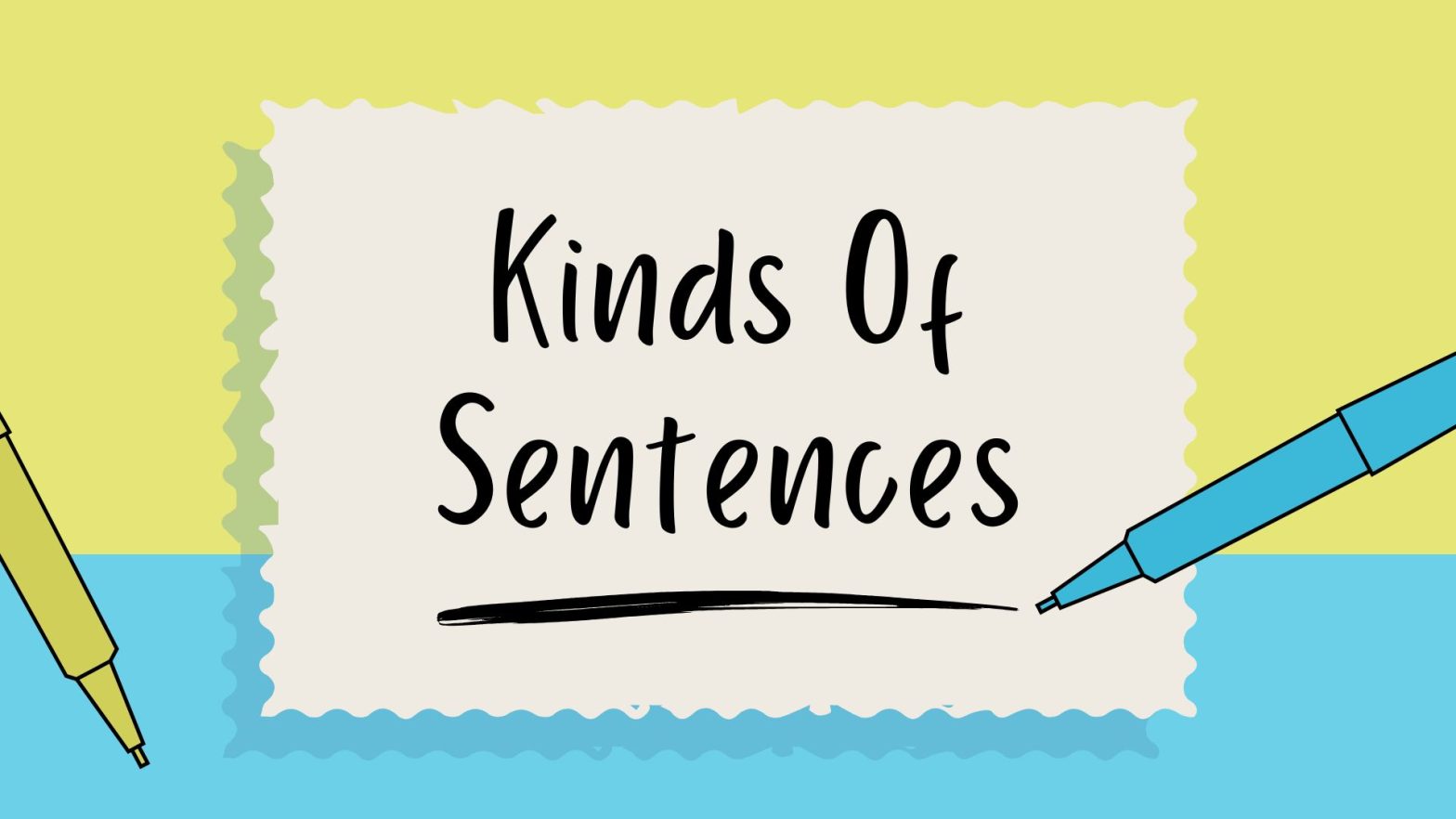
Communication depends on words, and knowing about "kinds of sentences" helps you communicate more effectively.
Apart from providing more clarity in conversation, understanding types also helps in setting the right tone for your message and influencing or persuading your audience. The process makes your writing style more engaging, compelling, and expressive, and refines your reading comprehension.
A sentence is a set of words that conveys a message or meaning. It contains one or more clauses (subject and verb). These can be categorized based on their function and structure.
In general, there are five kinds of sentences according to function and four kinds of sentences according to their structure. Let us explore this is more detail:
In a broader sense, there are four main types of sentences according to their function: declarative, interrogative, imperative, and exclamatory. However, if you look deeper, there is a fifth kind of sentence called optative.
Declarative sentences simply declare or communicate something. It could be an opinion, explanation, or fact. They end with a full stop or period (.).
Interrogative sentences are questions. They demand information and include question words, such as what, who, where, when, which, how, and why.
These kinds of sentences always end with a question mark (?).
Imperative sentences make requests, give commands or instructions, and offer advice. In simple terms, they direct someone to do or not do something. Here the subject "you" is always understood or assumed, so they do not use a subject. They end with a period (.).
Exclamatory sentences denote emotions, such as happiness, anger, excitement, sorrow, or surprise. They include interjections, like "Hurray!" or "Wow!". These sentences end with an exclamation mark (!).
Optative lines express a wish, desire, blessing, prayer, or curse. Their function is to show desire, goodwill, or ill will. They often end with a period (.) or an exclamation mark (!).
These sentences are categorized based on the number and type of clauses. There are four types according to structure: simple, compound, complex, and compound-complex.
As their name says, these are simple lines that have one independent clause. They express a complete thought.
Compound sentences may have more than one independent clause. A coordinating conjunction (such as "and," "for," "nor," "or," "but," "so," or "yet") or a semicolon connects these clauses.
A complex sentence contains one independent and at least one subordinate (dependent) clause. These lines have subordinating conjunctions (although, because, when, since, if, while, etc.). If a subordinate clause comes first, it should be separated by a comma.
Compound-complex sentences contain more than one independent clause and at least one dependent clause.
Sentences are the building blocks of language. They give structure to our thoughts and help us convey ideas in a way that others can understand. From statements and questions to wishes and commands, these shape the way we communicate.
Understanding kinds of sentences allows us to write and speak with clarity, confidence, and impact. Moreover, it also helps in building stronger writing and communication skills.